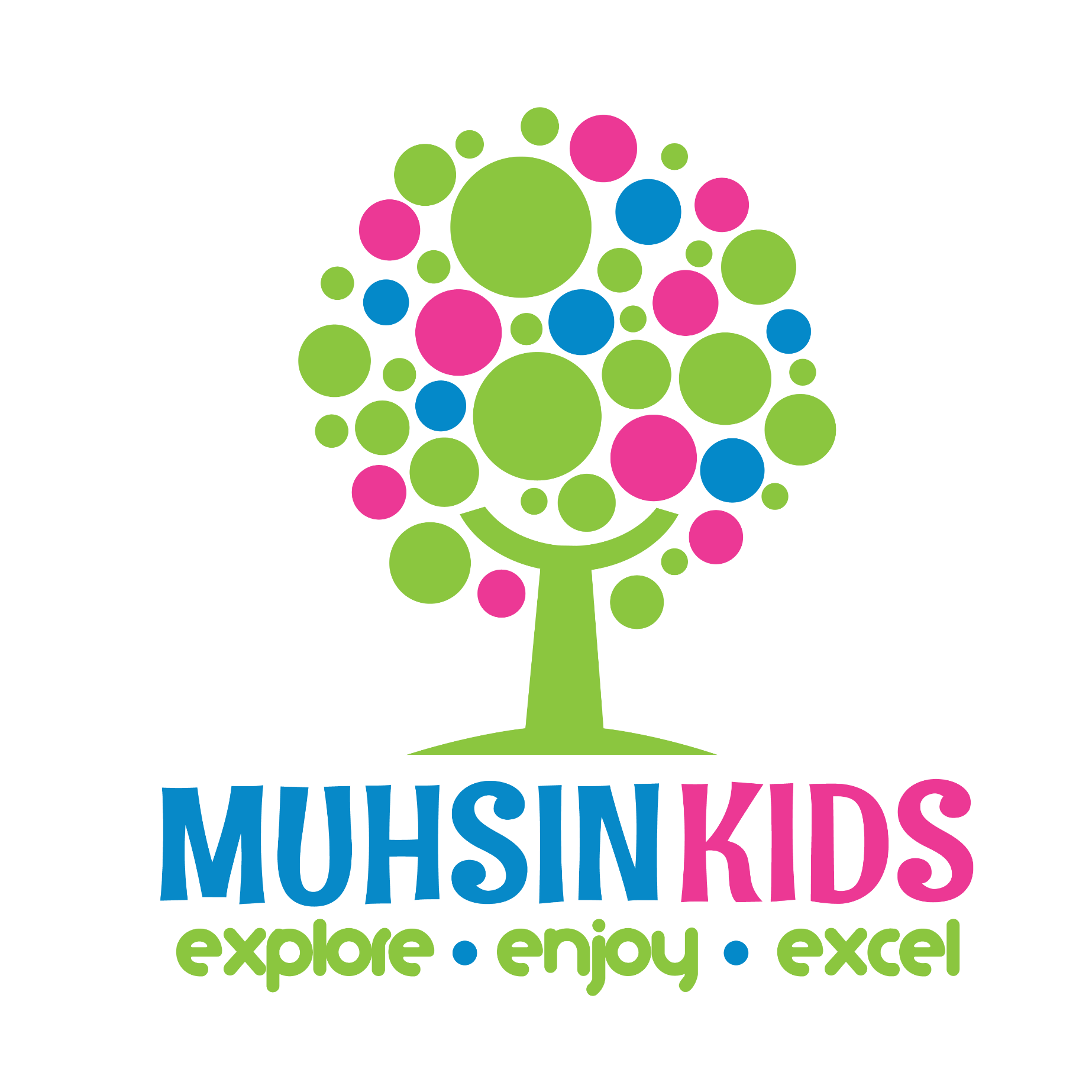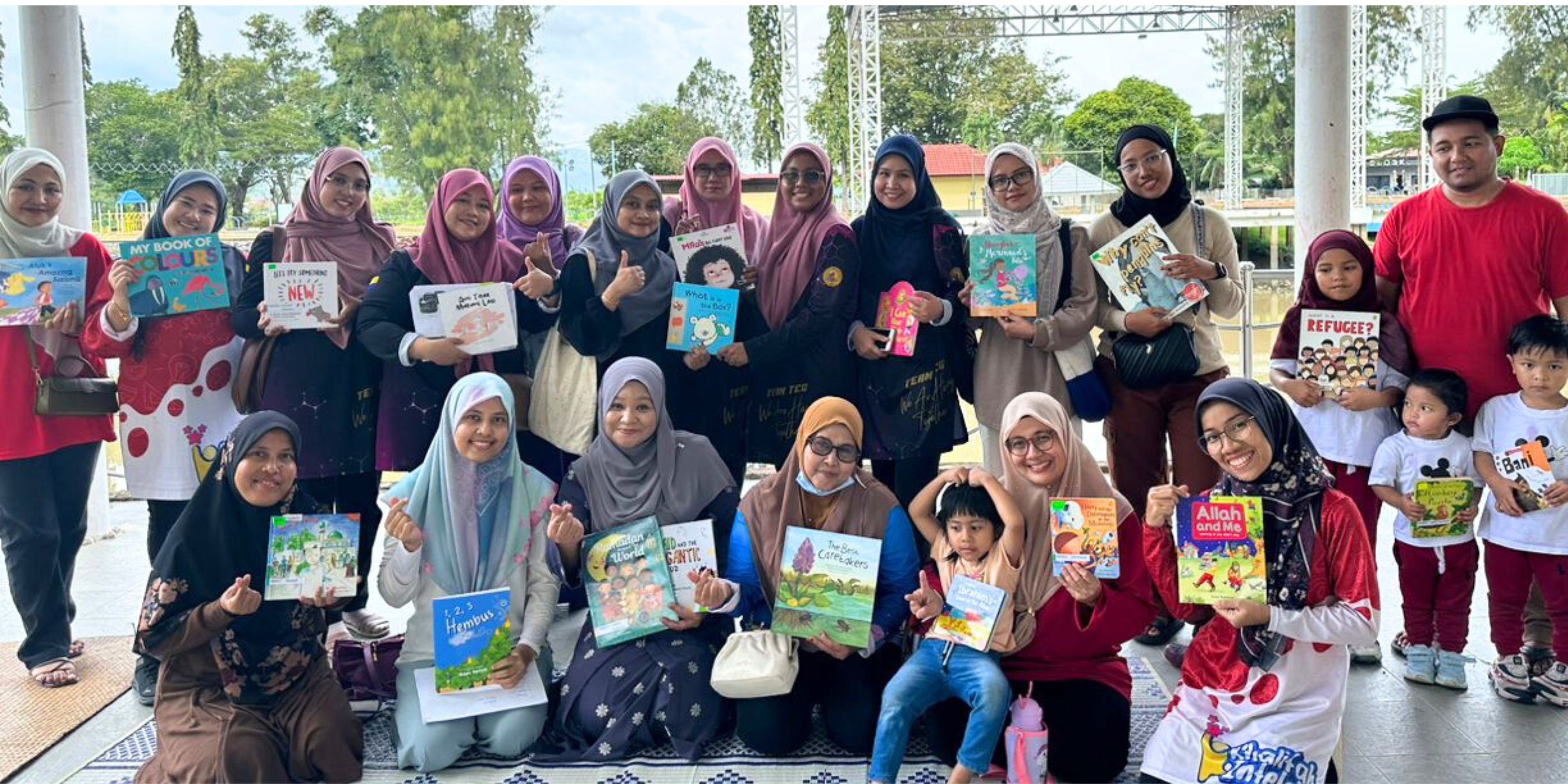Dear Kindergarten/Daycare Operators and School Administrators,
As a kindergarten or school operator, what challenges do you face regarding parents' expectations for their children's reading achievements?
How do these expectations affect you and your educators, as well as the overall learning environment?
You know that sometimes parents' expectations are not aligned with the school's educational principles based on children's development, but how do you convey this to the parents?
If you could relate to the questions mentioned above, rest assured that you're not alone. Many other operators are facing similar hurdles.
At Muhsin Kids, we're dedicated to fostering a nation of readers in Malaysia. That's why we're extending our support to the entire community, including children, parents, schools, and beyond. With our extensive experience working with numerous schools, kindergartens, and daycare centers, we aim to serve as a hub for sharing best practices that effectively establish strong school-parent relationships to support the literacy development of every child.
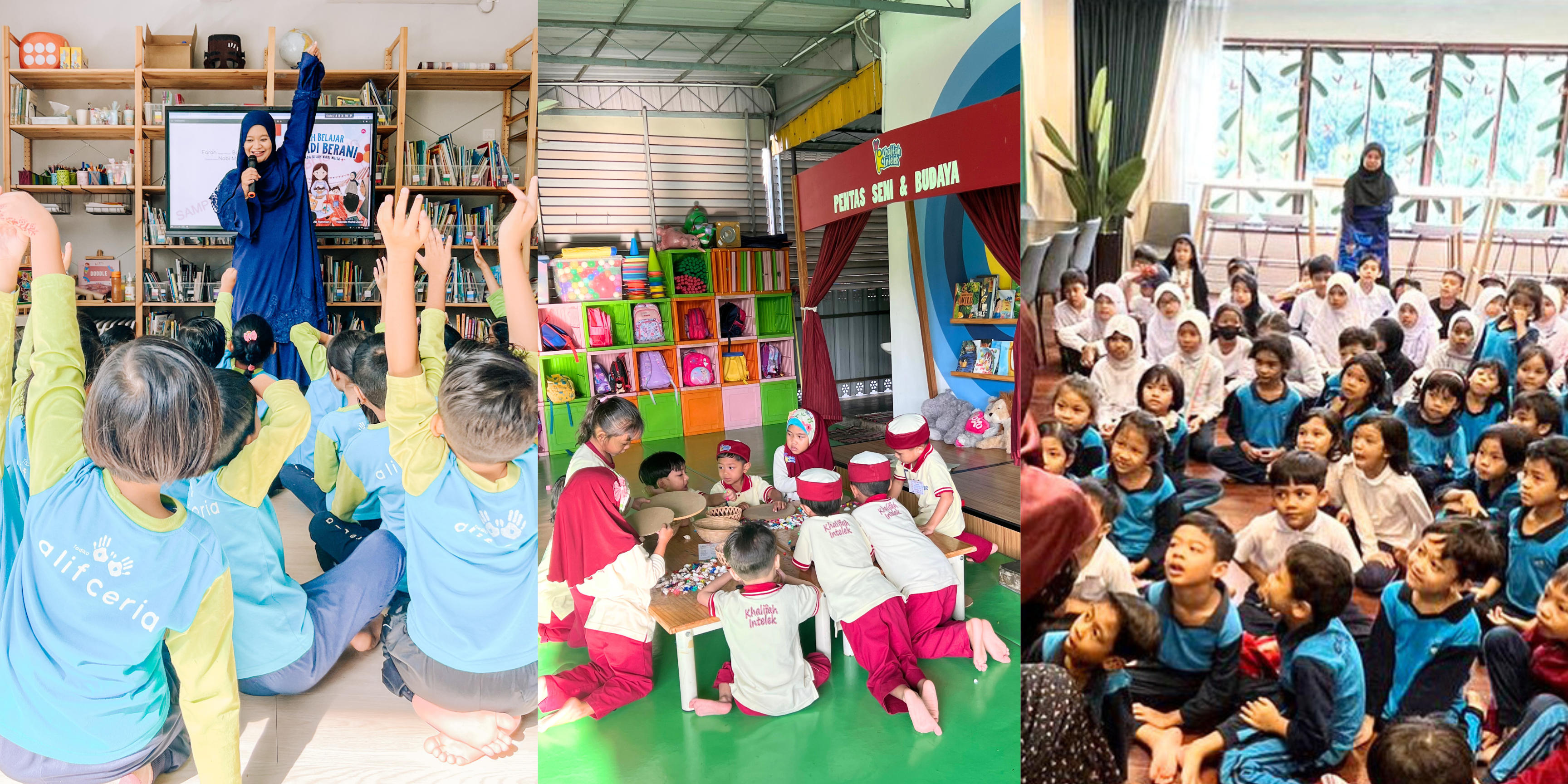
In this write-up, we're not only extending our support but also sharing practical tips that you may implement to enhance collaboration with parents. Additionally, we'll highlight an exemplary effort conducted by Tadika Khalifah Intelek, showcasing how they achieved harmonious collaboration with parents.
Now, let's walk this path together!
The Key Element to Eliminate Misunderstanding is Effective Communication.
Absolutely, the key element to eliminate misunderstanding is effective communication. In every aspect of life, communication plays a crucial role.
When it comes to nurturing young minds, fostering effective communication between schools and parents is essential for shaping a child's educational success. This partnership is particularly critical in developing foundational skills such as reading.
By making your efforts and systematic instructions transparent to parents, you empower them to provide valuable support. As a result, you'll encounter fewer complaints and gain more support, all for the benefit of the children!
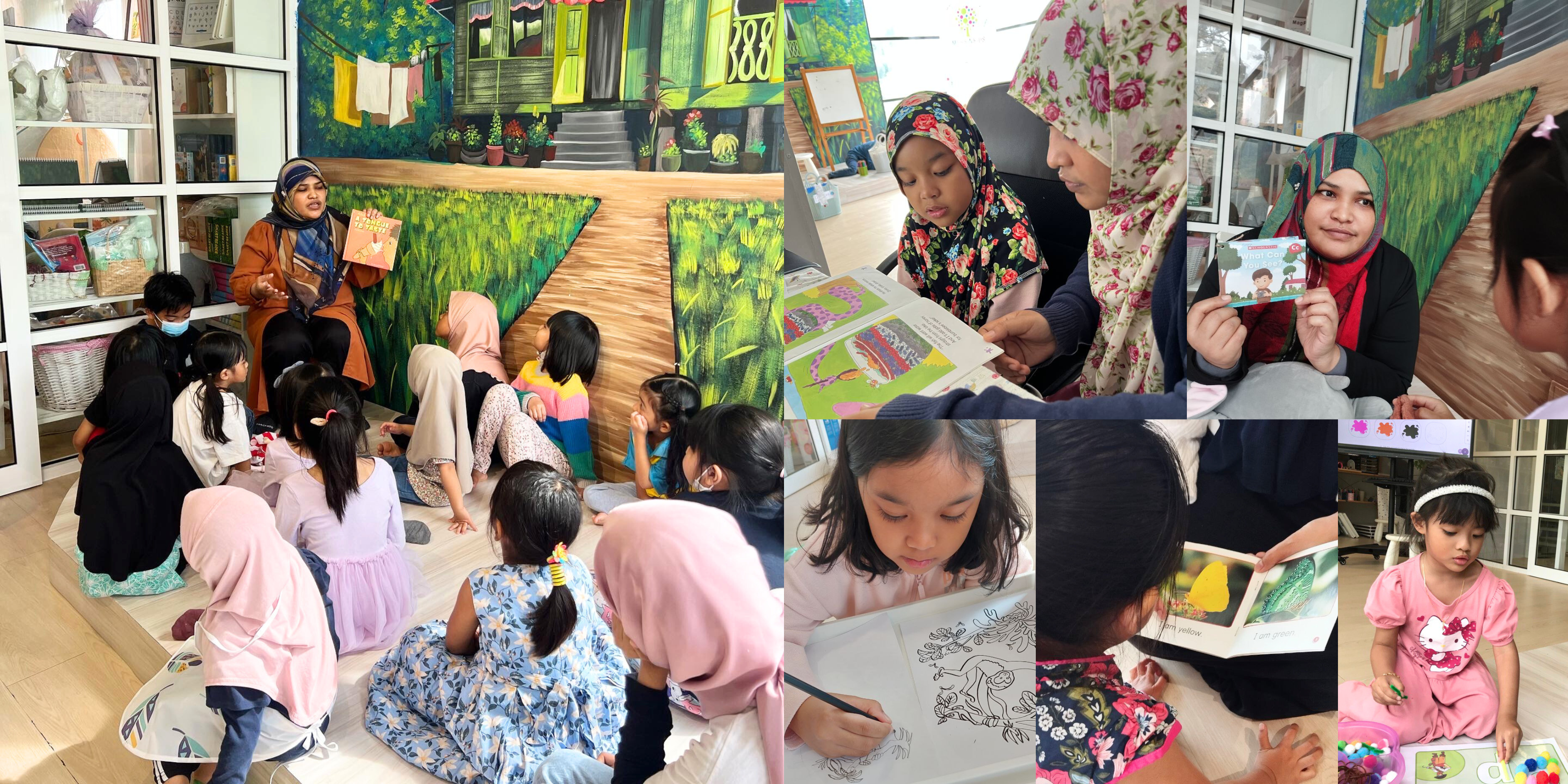
Learning to read is a complex process, and the instructional methods vary from one learning center to another. Research in reading has evolved over time, leading to differences in how children are taught to read compared to previous generations. Therefore, early briefing followed by consistent communication is crucial.
Why School-Parent Communication Matters?
Effective school-parent communication is paramount for several reasons.
Firstly, it supports consistency by reinforcing reading practices between school and home, thereby solidifying children's understanding and skills. Secondly, transparent communication fosters trust between educators and parents, resulting in increased parental involvement and engagement in their child's educational journey.
Thirdly, it enables educators to tailor support to each child's unique needs, facilitating effective interventions. Finally, aligning school and home efforts promotes a unified approach to reading, ensuring that children receive consistent messages about its importance and reinforcing its value in their daily lives.
Now, the question is, how can you achieve effective communication? Here, we share some practical actions you may take.
Effective Strategies for Collaborating with Parents: Tips and Insights
1. Workshops and Information Sessions
It is highly recommended to kick off each school year with workshops or information sessions for parents. These sessions are tailored to equip parents with effective reading strategies and techniques to implement at home, thereby nurturing a supportive learning environment for their children. Moreover, these sessions serve as a platform to communicate the school's principles of learning-to-read, ensuring parents understand the approach used to cultivate literacy skills in students while safeguarding their childhood experiences.
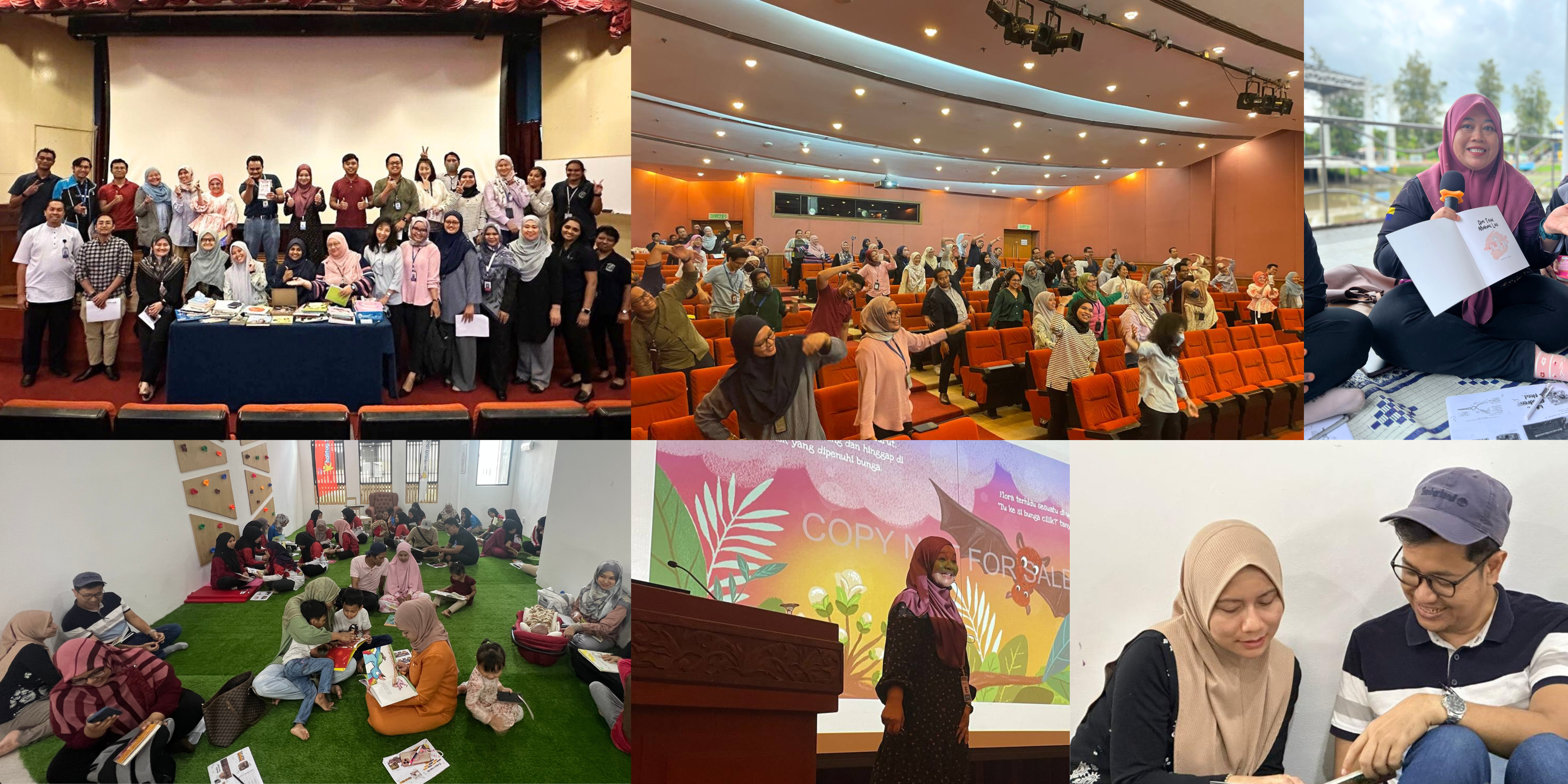
2. Modeling Behavior
The school shall commit in initiating and maintaining consistency in implementing steps or methods that support language and literacy development, such as the read-aloud routine. This routine will be seamlessly integrated into the daily schedule to showcase its significance, thereby inspiring parents to replicate similar practices at home.
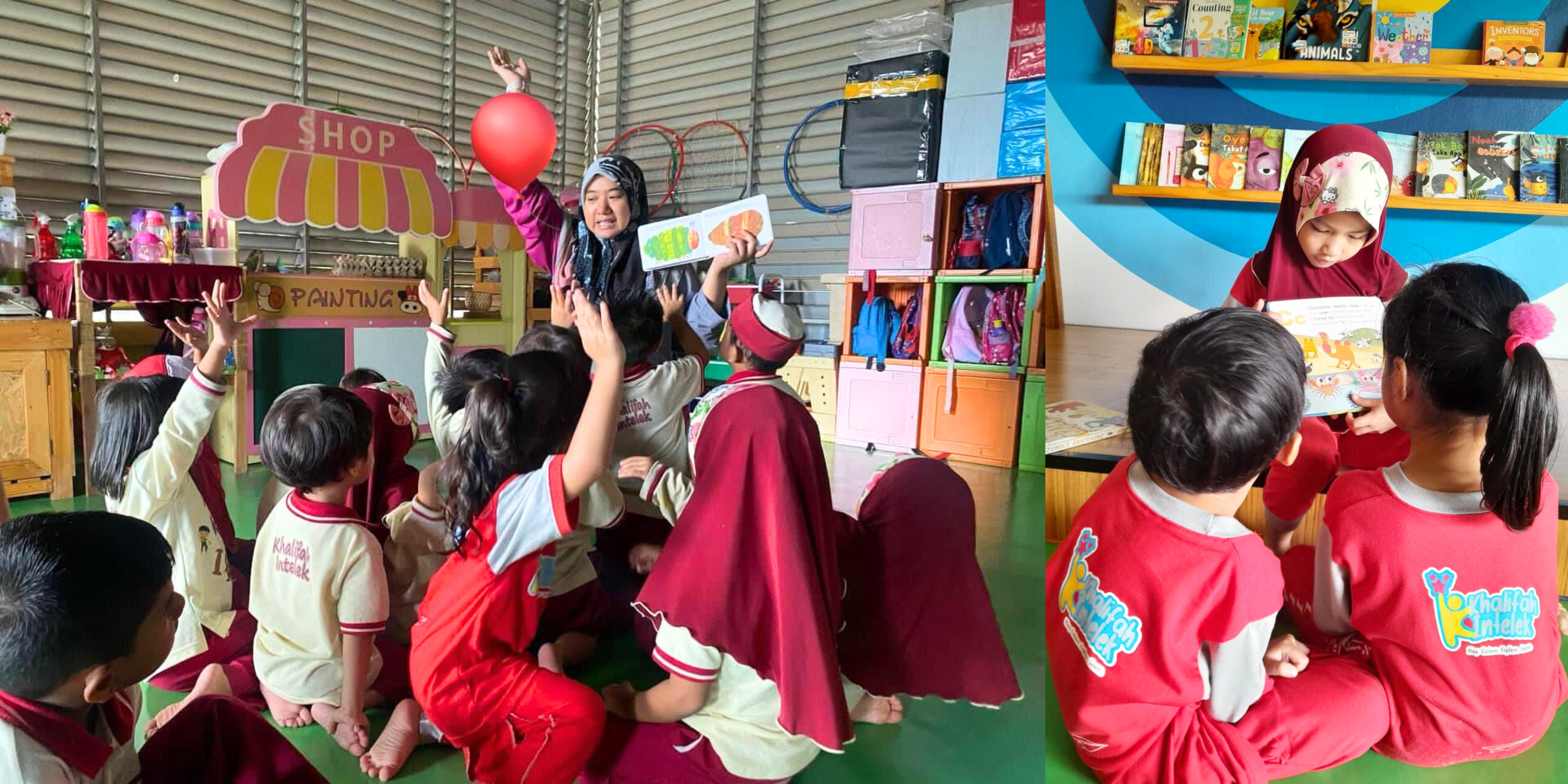
Left: A read aloud session at Tadika Khalifah Intelek. Right: Children see, children do - a child is 'reading' to her friends, imitating read aloud session she attends daily.
Click HERE to continue to read (Part 2).
Featured in this article:
GIS Kids Preschool, Nilai, Negeri Sembilan.
Tadika Khalifah Intelek, Pulau Pinang and Perlis.
